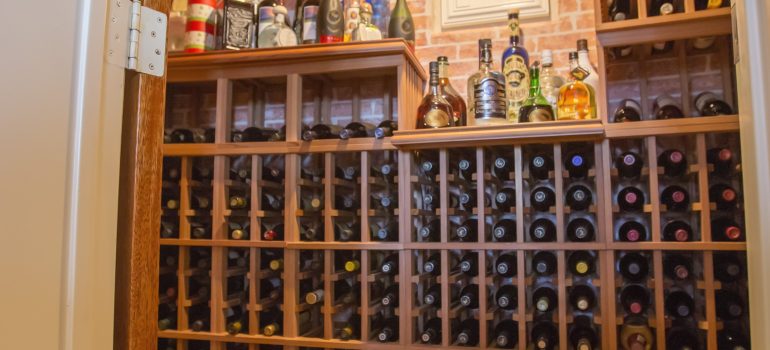April 6, 2025
Why Woman Like to Drink Wine
Women enjoy drinking wine for a variety of social, cultural, psychological, and even biological reasons. While preferences vary from person to person, here are some common reasons why many women are drawn to wine:
1. Social & Cultural Appeal 🍷
-
-
-
-
- Wine is often a social drink, making it a staple at gatherings, dinners, and celebrations.
- Many women associate wine with quality time with friends, whether it’s a girls’ night out, brunch, or a quiet evening at home.
- It’s often portrayed in media as a relaxing, sophisticated, or indulgent choice, reinforcing its appeal.
-
-
-
2. Relaxation & Stress Relief 🧘♀️
-
-
-
-
- Wine contains compounds like resveratrol that can have calming effects.
- Many women enjoy a glass after work or before bed to unwind and de-stress.
- Unlike hard liquor, wine is often consumed slowly, making it feel more like an experience than just a drink.
-
-
-
3. Taste & Variety 🍇
-
-
-
-
- Women tend to have more sensitive palates, making them enjoy the rich flavors, aromas, and textures of wine.
- Wine offers a huge variety (red, white, rosé, sparkling, sweet, dry), making it easy to find something that matches individual preferences.
- Many women enjoy the pairing experience—finding wines that complement different foods.
-
-
-
4. Perceived Health Benefits ❤️
-
-
-
-
- Some believe that moderate wine consumption (especially red wine) can:
-
-
-
-
-
-
-
-
-
- Support heart health due to antioxidants.
- Reduce stress and inflammation.
- Improve digestion when paired with meals.
-
-
-
-
-
-
-
-
-
- While overconsumption is unhealthy, some women see a glass of wine as a “healthier” alcohol choice compared to beer or hard liquor.
-
-
-
5. Wine Feels More Elegant & Feminine 🍾
-
-
-
-
- Compared to beer or whiskey, wine is often marketed as a sophisticated and feminine choice.
- The ritual of drinking wine—swirling, sniffing, sipping—feels refined and enjoyable.
-
-
-
6. The Emotional & Psychological Connection 💆♀️
-
-
-
-
- Wine is often tied to self-care and relaxation, whether it’s a bubble bath, a book, or a cozy night in.
- Many women see wine time as “me-time”, allowing them to disconnect from daily stress.
-
-
-
7. It’s a “Safe” Alcohol Choice 🚫🍻
-
-
-
-
- Some women prefer wine because:
-
-
-
-
-
-
-
-
-
- It’s less intense than liquor.
- It’s socially acceptable in more settings (dinners, work events, casual hangouts).
- It’s easier to control intake (sipping vs. taking shots).
-
-
-
-
-
8. Wine Is a Shared Experience 🥂
-
-
-
-
-
- Wine brings people together—whether it’s wine-tasting, vineyard visits, or simply sharing a bottle at dinner.
- Many women enjoy discussing flavors, brands, and new discoveries with friends.
-
-
-
-
So, Why Do Women Like Wine?
It’s a combination of social, sensory, and psychological factors—from the ritual of drinking to the way it makes them feel. Wine is not just a beverage; for many women, it’s an experience, a lifestyle, and a way to connect with others.



